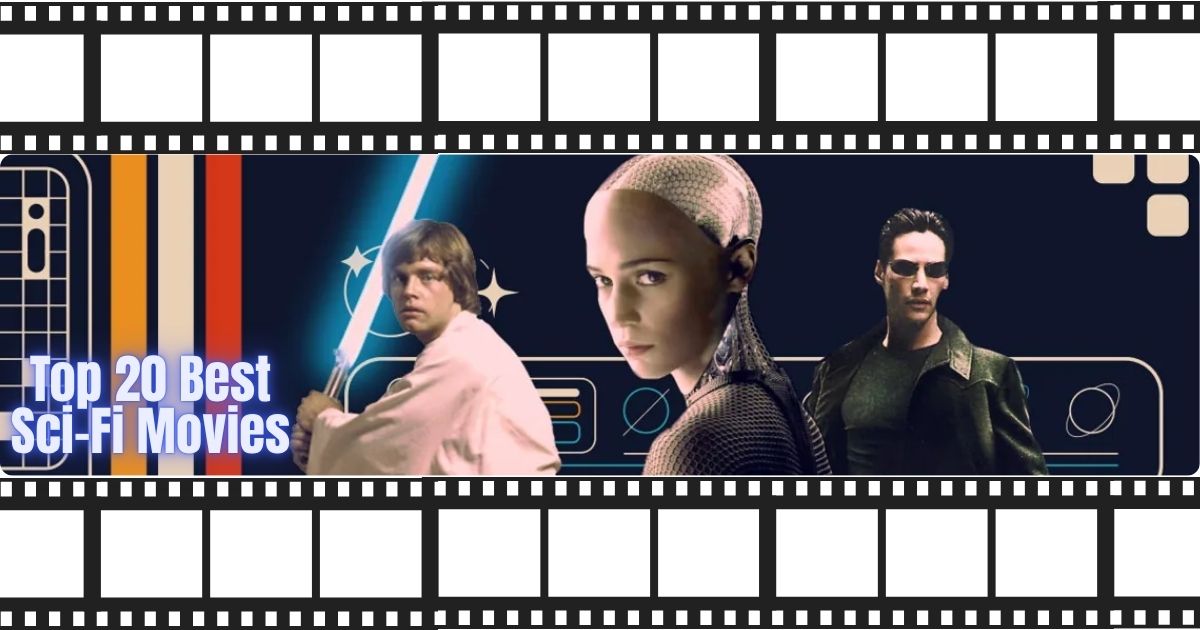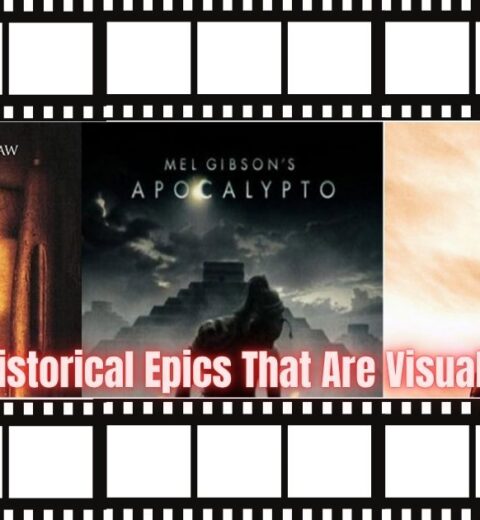Science fiction isn’t just about spaceships and laser guns; at its heart, it’s a genre that holds a mirror up to humanity, exploring our fears, our potential, and the very nature of existence. The greatest sci-fi films don’t just entertain; they pose philosophical questions and push the boundaries of filmmaking technology, ultimately shaping the art form itself.
For every aspiring filmmaker, writer, actor, or artist looking to break into the industry-and especially for those using a platform like Cast Artists to showcase their talent-understanding these foundational works is essential. They are the cinematic benchmarks that have influenced generations of creators and continue to inspire new visions of the future.
Here is our definitive list of the Top 20 Best Sci-Fi Movies of All Time That Defined the Genre, each a monumental achievement that changed cinema forever.
The Pioneering Epoch (1927 – 1970s)
These films set the standard, proving that science fiction could be an art form capable of tackling profound social and existential themes.
- 1. Metropolis (1927): Fritz Lang’s silent masterpiece is the blueprint for all cinematic dystopias. Its Art Deco cityscapes and stark class warfare imagery (the elite living high, the workers toiling below) still define the aesthetic of future-shock cinema.
- 2. 2001: A Space Odyssey (1968): Stanley Kubrick’s enigmatic epic is often cited as the greatest sci-fi film ever made. It’s a meditation on human evolution, artificial intelligence (hello, HAL 9000), and the mystery of the cosmos. Its visual language and slow, deliberate pacing reinvented how space could be depicted on screen.
- 3. Planet of the Apes (1968): A masterful blend of adventure and social commentary. Its shocking twist ending is one of the most famous in cinematic history, using a sci-fi premise to brilliantly critique humanity’s own self-destruction.
The Age of the Blockbuster and Beyond (1977 – 1980s)
The late ’70s and ’80s saw science fiction become a dominant box-office force, mixing spectacle with genre-blending brilliance.
- 4. Star Wars: Episode IV – A New Hope (1977): While some call it “science fantasy,” its impact on cinema-from special effects to the creation of the space opera sub-genre-is undeniable. It proved that sci-fi could be grand, mythic, and universally appealing.
- 5. Alien (1979): Ridley Scott seamlessly fused sci-fi with horror, creating the “sci-fi horror” sub-genre. The claustrophobic setting and the sheer terror of the Xenomorph redefined creature design and the haunted house in space trope.
- 6. Blade Runner (1982): The quintessential Cyberpunk film. Its perpetual rain, neon-drenched dystopia, and noir-infused themes about memory and what it means to be human (replicant or otherwise) created a visual style that is still copied today.
- 7. The Terminator (1984): A lean, mean, time-travel thriller that launched one of cinema’s biggest stars (Arnold Schwarzenegger) and one of its most enduring debates: the danger of unchecked AI.
- 8. Back to the Future (1985): A pure slice of inventive, character-driven time travel comedy. Its brilliantly structured script established the rules for countless time-hopping adventures that followed.
- 9. Aliens (1986): James Cameron turned the horror of the original into a high-octane action film, proving that a sequel could completely re-imagine its genre while staying true to the core story.
The Modern Wave (1990s – 2000s)
Technology in the real world exploded, and so did the complexity of sci-fi narratives, exploring virtual reality, genetic engineering, and deeper philosophical paradoxes.
- 10. Jurassic Park (1993): Steven Spielberg’s masterpiece proved the power of CGI, setting the gold standard for blending digital effects with live-action filmmaking and sparking a renewed interest in genetic ethics.
- 11. The Matrix (1999): This film changed action choreography and visual effects forever with its “bullet time” sequences. Its core theme-are we living in a simulation?-became a massive cultural talking point and redefined the Cyberpunk and Virtual Reality sub-genres.
- 12. Gattaca (1997): A more grounded, quieter sci-fi film exploring a future where genetic makeup dictates social destiny. It’s a poignant exploration of genetic engineering and the resilience of the human spirit.
- 13. Eternal Sunshine of the Spotless Mind (2004): A beautiful, non-linear exploration of memory and relationships using a sci-fi premise (a procedure to erase unwanted memories). It showed the genre’s capacity for intimate, emotional storytelling.
- 14. Children of Men (2006): Alfonso Cuarón’s dystopian thriller uses stunning, long-take cinematography to immerse the audience in a world on the brink of collapse due to global infertility. It is a powerful example of dystopian realism.
The New Millennium Philosophers (2010 – Present)
Contemporary sci-fi has leveraged new technology to tackle vast, mind-bending concepts like dreams, parallel realities, and the limits of communication.
- 15. Inception (2010): Christopher Nolan’s heist film set in the architecture of the mind popularized high-concept, non-linear blockbusters. It redefined how dream worlds could be portrayed cinematically.
- 16. Arrival (2016): Denis Villeneuve’s masterpiece is a testament to the power of communication. It’s a quiet, philosophical alien first-contact story that explores linguistics, time, and human connection, setting a new bar for intelligent, character-focused sci-fi.
- 17. Blade Runner 2049 (2017): A rare sequel that masterfully expands the original’s world, further delving into the themes of memory, identity, and the existential loneliness of an artificial life.
- 18. Ex Machina (2014): A tight, chilling chamber piece that focuses almost entirely on the core sci-fi question: What is true artificial intelligence? It’s a modern classic for its sharp writing and minimalist style.
- 19. Interstellar (2014): A sweeping epic that brought theoretical physics (wormholes, black holes, time dilation) to the masses with stunning visuals and an emotional core about a father’s love.
- 20. Everything Everywhere All at Once (2022): This dazzling, maximalist film defined the current cultural obsession with the Multiverse. It blends comedy, action, and deep familial drama to show the genre can be both utterly absurd and profoundly moving.
Discover Your Own Genre-Defining Role
The directors, actors, costume designers, and visual effects artists behind these 20 films took risks, both creatively and technologically, and their work now stands as a timeless reference point for the entire industry.
If you are an artist or influencer eager to be part of the next genre-defining cinematic project, you need a professional platform to connect with media production companies and casting directors. Cast Artists is that platform. Create your portfolio today and find opportunities in film, web series, and more!
Contact Cast Artists:
For any services related to film production, artist representation, or profile management, please contact us.
- Email ID: info@castartists.com
- Contact us on: +91 9490056002



